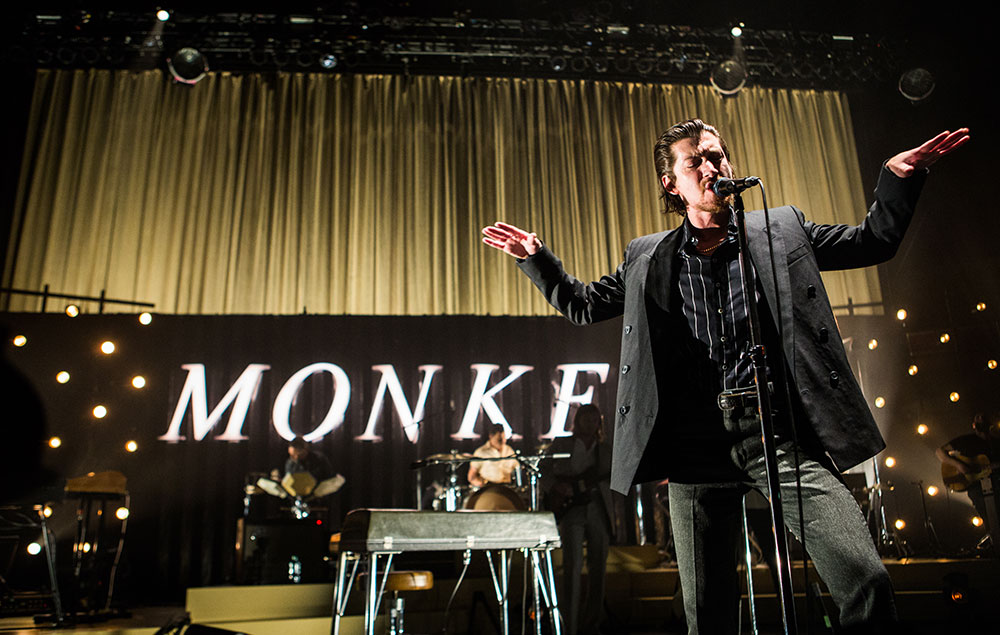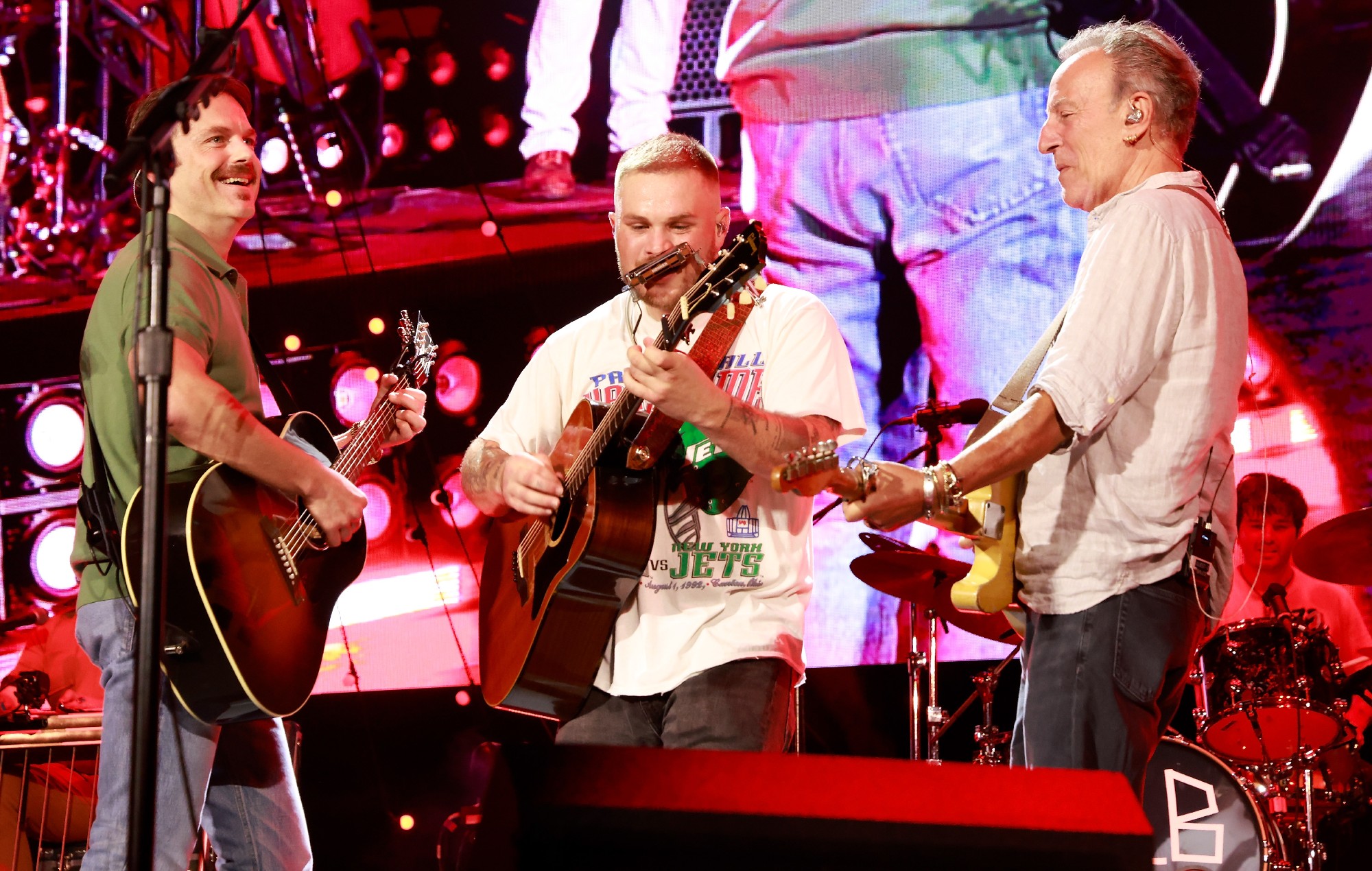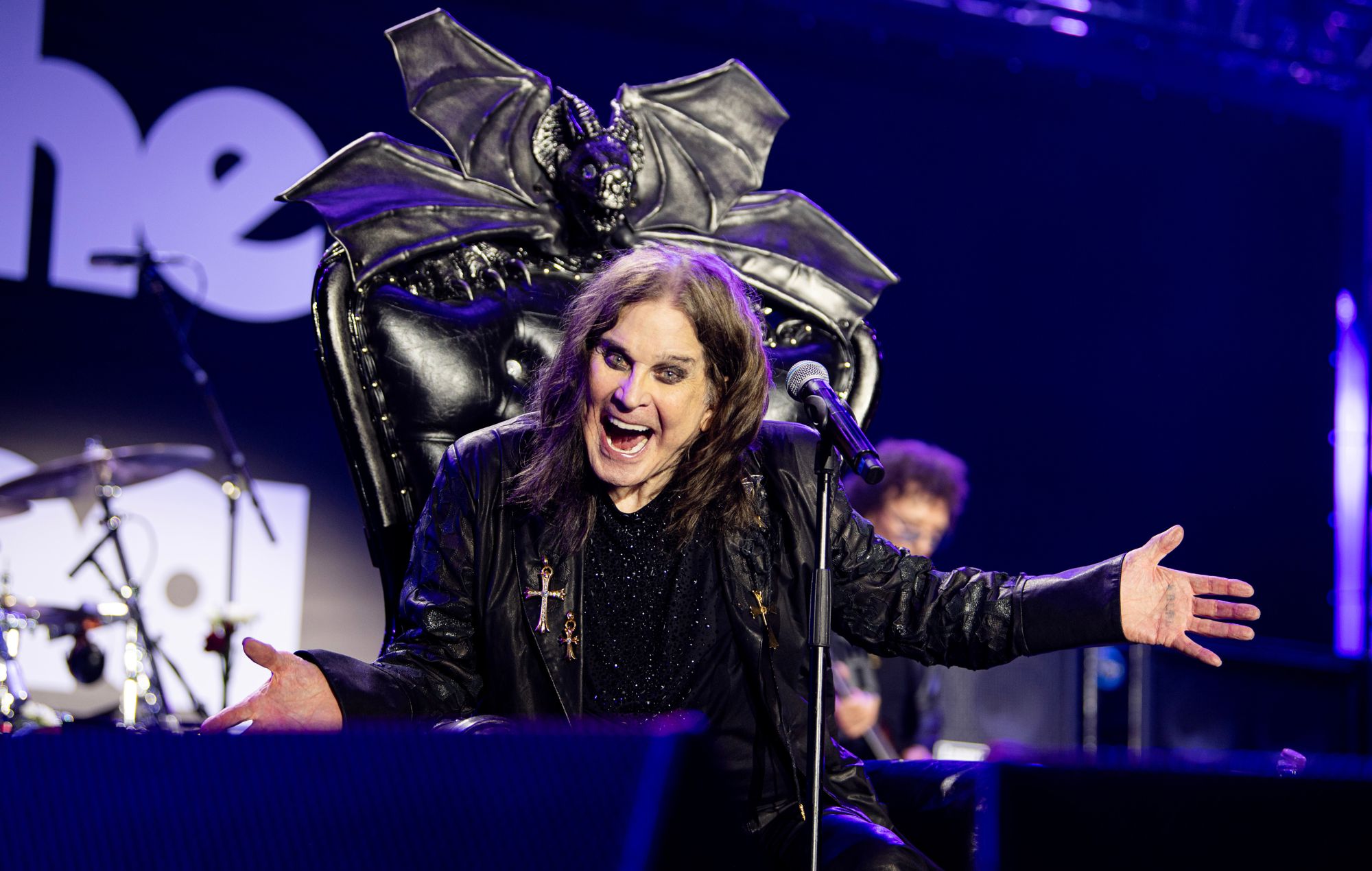
On June 7, 2018, Arctic Monkeys raised the curtain on their ‘Tranquility Base Hotel & Casino’ era in the fittingly palatial surroundings London’s Royal Albert Hall, all in aid of War Child. Just over two years later, and with the gig-goers craving for an evening as joyous as this was again, the band have released a live album to immortalise the show.
- READ MORE: Arctic Monkeys – ‘Live At The Royal Albert Hall’ review: a reminder of the cathartic joy of gigs
“The situation that was bad in 2018 is now desperate,” the band said of their support for War Child as they announced the album, “and those children and their families need our help more than ever”. As ‘Live At The Royal Albert Hall’ is finally released with all profits going to the charity, CEO Rob Williams and Head Of Music Richard Clarke have told NME about their memories of that heady night and how vital their work with War Child remains.
“The band really wanted to work it as hard as it could so it could raise as much as possible,” said Clarke. “There was a £2 sign-up to register your interest, and it raised over £250,000 for War Child, just with the live show. It was game-changing for us.”
See the full interview below, and donate to War Child here.
Hey guys. 2018 seems like a lifetime ago now – what do you remember of the gig?
Rich: “It was the perfect time for the show. They had been away for a long time, they hadn’t played live for about four years. The band left that gig on a massive high – it was off the charts. The setlist was just unreal, it was like a festival headline set.”
Rob: “It was a big show, so the boxes had an awful lot of people from the music industry there. I spent a certain part of my evening making sure that I spoke to all the people there that were important supporters of War Child. And then at a certain moment, I was in a box and they were playing ‘Arabella’, and I looked down to the standing area and thought, ‘This is actually an Arctic Monkeys show, and I want to be down there’. So I went down the back stairs and walked down onto the floor, and instantly got a much bigger hit.”
Rob, you spent some time with the band on the day of the show. What went down?
Rob: “They were really interested in the work we are doing. They asked me if we ever take musicians out to see the work that we do, and I said yes. We spoke about the security training we have to give musicians before they are taken out, and they have to learn emergency first aid and how to treat gunshot wounds to the chest.
“They were also interested in the psychological aspect of our work. The work War Child does is unique in several ways, and one is that we treat the trauma and the psychological impact of conflict as well, while every other charity is looking at food and shelter and basic life-saving water. We’re doing the life-saving on the psychological side.”

How did you end up working with the band again for the new live album?
Rich: “When Ian [McAndrew, Arctic Monkeys’ manager] first came to us with the idea for the show, there were discussions around filming it and recording it. The filming fell away, mainly because the band just wanted to be really comfortable in their own skin while playing those new songs, without having the added pressure of cameras everywhere and create a more visual-driven piece. We thought the opportunity had maybe gone away after some time elapsed, and then we got a phone call from the band saying, ‘We want to do it’.”
Rob: “It’s been an interesting year for War Child, and we realised as soon as COVID hit that some of our live fundraising events just weren’t going to happen, which created something of a financial problem. It’s been clear to us that musicians that we’ve worked with in the past have sat down and worked out what they can do to help, without us necessarily asking them. For example, Marcus Mumford recorded a single and put it out in April without even talking to us about it. It’s been a year when you realise who your friends are, and the Arctics’ live album fits into that pattern.”
How has the Coronavirus impacted on the work that you do?
Rob: “The numbers of cases and deaths in the countries we work in is quite hard to get in a data set, because testing is almost not happening. But what is much clearer is the economic devastation of lockdown. So many families have gone instantly into financial distress, and we’ve seen big increases in the number of children being drawn into informal mining. Back in April, every single school in the refugee camps were closed. There were over a billion children in the world who weren’t going to school.
“For our children, the ones who have had psychological and emotional catastrophe, school isn’t just school. It’s a place where you get routine and safety, and you begin to rebuild your psychological strength. We’ve done a lot of work to provide families and children with school kits that they can use at home. No-one has a tablet or iPad, but they now have War Child home school kits and we’re keeping in touch via telephone to give psycho-social counselling.”
Are there specific projects that the funds raising from Arctic Monkeys’ album will be going towards?
Rob: “This is unrestricted money, which means we can use it for whatever we think needs it most, which means it is incredibly valuable, especially in a year like this one. We had to move a lot of people around, buy lots of PPE and do lots of training, and if you want to hand out hygiene kits to all the families we work with, you need flexible funding to be able to do that.”
In other music-related matters, War Child also re-released your legendary ‘Help’ album this year to mark its 25th anniversary. What’s in the pipeline for 2021?
Rich: “We’re discussing bringing Brits Week back next year, hopefully in late April and early May before the awards. We’re not sure whether it will be socially-distanced yet, but we hope to get full bodies back in a gig, because the idea of the series is big bands in small venues, and works best when there are sweaty bodies in a small room bouncing up and down together.
“After the ‘Help’ album reissue, we’re also looking into the idea of recording music again, and seeing whether any live-streaming events could work while we wait for live music to return. We’ve also done a gig series called Safe & Sound over the last few years, looking at the mental health and psychosocial work we do, and are looking to bring that back for 2021.”
‘Arctic Monkeys – Live At The Royal Albert Hall’ is out now via Domino. Order it here, and donate to War Child here.






